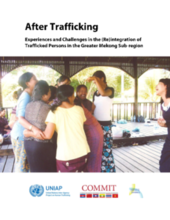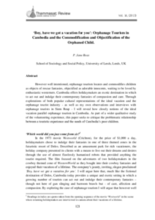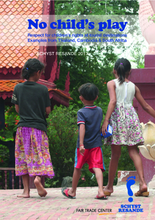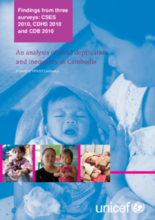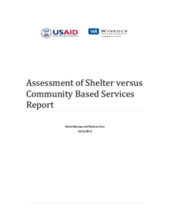This country page features an interactive, icon-based data dashboard providing a national-level overview of the status of children’s care and care reform efforts (a “Country Care Snapshot”), along with a list of resources and organizations in the country.
demographic_data
childrens_living_arrangement
children_living_without_bio
social_work_force
key_stakeholders
Key Stakeholders
Add New DataOther Relevant Reforms
Add New Datadrivers_of_institutionalisation
Drivers of Institutionaliziation
Add New Datakey_research_and_information
Key Data Sources
Add New DataMapping of residential care facilities in the capital and 24 provinces of the kingdom of Cambodia
National estimation of children in residential care institutions in Cambodia: A modelling study
Prevalence and number of children living in institutional care: global, regional, and country estimates
Shaping the national social protection strategy in Cambodia: Global influence and national ownership
Towards a Social Protection Strategy for the Poor and Vulnerable: Outcomes of the consultation process
Country Care Profile: Cambodia
Acknowledgements
Data for this country care snapshot was contributed by partners at Family Care First and UNICEF Cambodia.
Displaying 241 - 250 of 285
This study, coordinated by the United Nations Inter-agency Project on Human Trafficking, draws findings from in-depth interviews with 252 trafficked persons about their experiences of (re)integration, including successes and challenges, as well as future plans and aspirations.
In his blog post, Harold Goodwin explains how learning about the unintended negative impacts of orphanage volunteering and how the decision was made to remove orphanage volunteering trips from responsibletravel.com’ offerings.
In this opinion piece, Daniela Papi writes about her personal experience as an international volunteer and how she came to realize the potential detrimental effects her volunteer work had on the communities with whom she worked.
As part of a wider qualitative study of the volunteering experience, this paper seeks to critique the problematic relationship between a touristic experience and the needs of Cambodia’s poor children.
This report was commissioned by the Swedish network Schyst Resande and conducted by the Fair Trade Center, with the overall objective of raising awareness of children’s rights in relation to tourism and travel destinations which many Swedish tourists visit.
In her entry on the Huffington Post Blog, Daniela Papi writes about the discussions that took place at the World Travel Mart Responsible Tourism Day related to child protection and orphanage tourism.
This paper from UNICEF presents a profile of children in Cambodia, paying particular attention to those who are left behind in different spheres - education, health and nutrition, and protection - against the backdrop of society’s prevalent inequality.
This assessment examines shelter and community-based care models for victims of trafficking in Cambodia, and explores the best practices of service providers.
This article sheds light on the money-making industry of orphanages and orphanage voluntourism in Cambodia.
Throughout Cambodia well-intentioned volunteers have helped to create a surge in the number of residential care homes as impoverished parents are tempted into giving up their children in response to promises of a Western-style upbringing and education. Despite a period of prosperity in the country, the number of children in orphanages has more than doubled in the past decade, and over 70 per cent of the estimated 10,000 'orphans' have at least one living parent.

